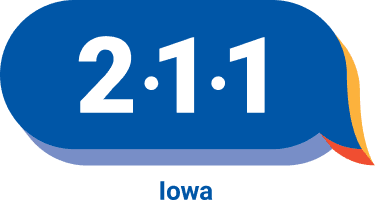Search
DISABILITY EXPENSE SAVINGS ACCOUNTS | ENABLE SAVINGS PROGRAM OF NEBRASKA
What's Here
FREE TO SAVE | COMMUNITY ACTION PARTNERSHIP OF LANCASTER AND SAUNDERS COUNTIES
Provides individuals and families with low-to-moderate incomes with financial and asset-specific education and 4:1 savings match for one of the following purchases/investments:
- Home
- Vehicle
- Small business start-up/expansion
- Post-secondary education
Provides individuals and families with low-to-moderate incomes with financial and asset-specific education and 4:1 savings match for one of the following purchases/investments:
- Home
- Vehicle
- Small business start-up/expansion
- Post-secondary education
What's Here
ENABLE SAVINGS PLAN | ENABLE SAVINGS PLAN
Savings plan for individuals with disabilities which allows them to save without an impact to their benefits, as part of the State Treasurer's Office.
Clients can open an Enable Savings Plan account at any time if the eligible disability exists at the time an account is opened, and the onset of the disability was prior to the individual's 26th birthday (increasing to 46 on Jan 1, 2026).
Money in an account is used to pay for future Qualified Disability Expenses. Only one ABLE account can be open at a time in any ABLE plan nationwide.
Savings plan for individuals with disabilities which allows them to save without an impact to their benefits, as part of the State Treasurer's Office.
Clients can open an Enable Savings Plan account at any time if the eligible disability exists at the time an account is opened, and the onset of the disability was prior to the individual's 26th birthday (increasing to 46 on Jan 1, 2026).
Money in an account is used to pay for future Qualified Disability Expenses. Only one ABLE account can be open at a time in any ABLE plan nationwide.
What's Here
OPPORTUNITY PASSPORT | CENTRAL PLAINS CENTER FOR SERVICES
Financial Literacy Program for coaching eligible youth. This matched-savings, asset-building program includes financial literacy education, asset-specific training and support through a dedicated Coach.
Coaches facilitate training while working one-on-one with each youth as they learn financial capabilities, receive asset-specific training, build savings, build and repair credit, receive financial counseling, and will support them as they save and prepare for an asset match.
The goal is for young adults to achieve economic stability and self-sufficiency by focusing efforts on increasing earning potential, budgeting, reducing debt, opening personal banking accounts, understanding and appropriately utilizing credit, saving, and investing.
Financial Literacy Program for coaching eligible youth. This matched-savings, asset-building program includes financial literacy education, asset-specific training and support through a dedicated Coach.
Coaches facilitate training while working one-on-one with each youth as they learn financial capabilities, receive asset-specific training, build savings, build and repair credit, receive financial counseling, and will support them as they save and prepare for an asset match.
The goal is for young adults to achieve economic stability and self-sufficiency by focusing efforts on increasing earning potential, budgeting, reducing debt, opening personal banking accounts, understanding and appropriately utilizing credit, saving, and investing.
What's Here
FINANCIAL EDUCATION PROGRAM | FAMILY HOUSING ADVISORY SERVICES, INC.
Financial education including monthly workshops to help individuals gain or regain control over their finances. One on one counseling is also available after completing the workshop.
Asset Management Individual Development Account (IDAs) are matched savings accounts which may be used for the purchase of assets such as buying a home, pursuing post-secondary education or vocational training, and starting or expanding a small business.
Opportunity Passport Account program helps youth leaving foster care become financially literate as they gain experience with the banking system. Youth amass assets for education, housing, health care, vehicle, investments and other specified expenses.
Advocacy, including reviewing credit report, preparing financial action plan, assisting with setup of debt repayment schedules, and ongoing review of household budget.
Financial education including monthly workshops to help individuals gain or regain control over their finances. One on one counseling is also available after completing the workshop.
Asset Management Individual Development Account (IDAs) are matched savings accounts which may be used for the purchase of assets such as buying a home, pursuing post-secondary education or vocational training, and starting or expanding a small business.
Opportunity Passport Account program helps youth leaving foster care become financially literate as they gain experience with the banking system. Youth amass assets for education, housing, health care, vehicle, investments and other specified expenses.
Advocacy, including reviewing credit report, preparing financial action plan, assisting with setup of debt repayment schedules, and ongoing review of household budget.
What's Here
FINANCIAL EDUCATION PROGRAM | FAMILY HOUSING ADVISORY SERVICES, INC.
Financial education including monthly workshops to help individuals gain or regain control over their finances. One on one counseling is also available after completing the workshop.
Asset Management Individual Development Account (IDAs) are matched savings accounts which may be used for the purchase of assets such as buying a home, pursuing post-secondary education or vocational training, and starting or expanding a small business.
Opportunity Passport Account program helps youth leaving foster care become financially literate as they gain experience with the banking system. Youth amass assets for education, housing, health care, vehicle, investments and other specified expenses.
Advocacy, including reviewing credit report, preparing financial action plan, assisting with setup of debt repayment schedules, and ongoing review of household budget.
Financial education including monthly workshops to help individuals gain or regain control over their finances. One on one counseling is also available after completing the workshop.
Asset Management Individual Development Account (IDAs) are matched savings accounts which may be used for the purchase of assets such as buying a home, pursuing post-secondary education or vocational training, and starting or expanding a small business.
Opportunity Passport Account program helps youth leaving foster care become financially literate as they gain experience with the banking system. Youth amass assets for education, housing, health care, vehicle, investments and other specified expenses.
Advocacy, including reviewing credit report, preparing financial action plan, assisting with setup of debt repayment schedules, and ongoing review of household budget.
What's Here
